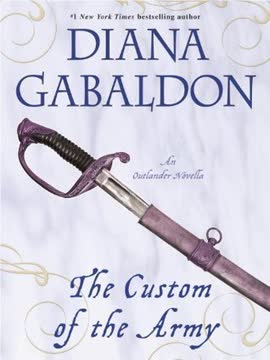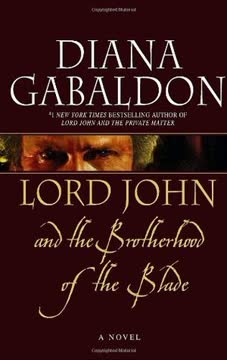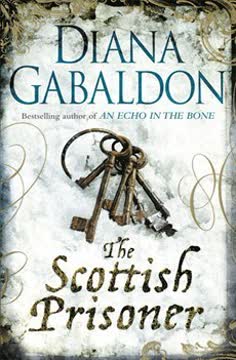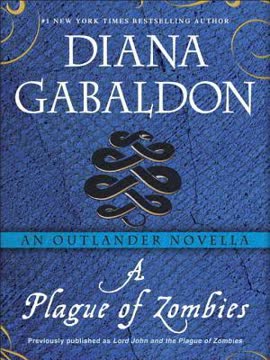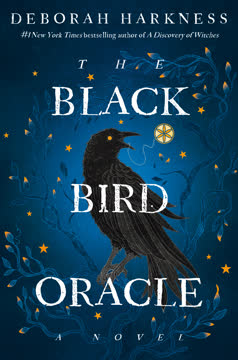Plot Summary
Electric Eel Catastrophe
Lord John Grey attends a fashionable London party featuring an electric eel, a symbol of the era's scientific curiosity and social daring. The eel's shock literally and figuratively jolts Grey, leading to a chaotic scene where passions and tempers flare. Amid flirtations and rivalries, Grey is drawn into a confrontation with the drunken poet Nicholls, whose boorish behavior toward Miss Caroline Woodford escalates tensions. The eel's jolt leaves Grey disoriented, his senses scrambled, and the party in uproar. This bizarre, electrifying incident becomes the catalyst for a chain of events that will upend Grey's life, setting him on a path from scandal to the battlefields of Canada.
Duel at Dawn
In the aftermath of the eel party, confusion reigns. Grey, still reeling from the shock, finds himself embroiled in a duel with Nicholls, the poet. The duel, fought in the rain and darkness, is a blur of adrenaline and uncertainty. Grey, intending only to delope (fire harmlessly), accidentally wounds Nicholls, who collapses dramatically. The incident, witnessed by many, quickly spirals into scandal. The duel's outcome is ambiguous—was it fatal, or merely a flesh wound?—but its repercussions are immediate, entangling Grey in a web of social and legal peril. The duel's violence and its unintended consequences haunt Grey, foreshadowing the moral ambiguities and dangers he will face.
Scandal and Summons
The morning after the duel, Grey is confronted by his brother Hal and a flurry of letters: a formal challenge from Lord Enderby, Caroline's brother, and a desperate note from Caroline herself. The duel has become a public scandal, threatening Grey's reputation and freedom. To complicate matters, news arrives that Nicholls has died, possibly from the duel. Hal, both protective and pragmatic, presents Grey with a new commission and a summons to serve as a character witness at a court-martial in Canada. The scandal, now inescapable, propels Grey out of London and into the uncertain world of military justice and colonial warfare.
Brotherly Counsel
Hal, the Duke of Pardloe, offers Grey both practical support and emotional insight. Their conversation reveals the deep bonds and unspoken traumas between the brothers—Hal's own history of duels and loss, Grey's reluctance to marry or settle. Hal's advice is laced with warnings about the dangers of following orders blindly and the cost of honor. The brothers' exchange is tender, laced with humor and regret, and sets the emotional tone for Grey's journey. Hal's new commission for Grey is both an escape from scandal and a burden of responsibility, sending him into the heart of the British Empire's military machine.
Orders to Canada
Grey, accompanied by his loyal valet Tom Byrd, embarks for Canada, joining a battalion of grenadiers. The voyage is long and fraught with anticipation. The Canadian wilderness, vast and alien, is both a physical and psychological frontier. Grey's arrival is marked by encounters with Native scouts, the threat of French and Indian raids, and the ever-present dangers of war. The landscape is alive with tension—between cultures, armies, and the natural world. Grey's sense of displacement is heightened by the strangeness of the land and the uncertainty of his mission: to serve as a witness at the court-martial of Captain Carruthers.
Arrival in the Wilderness
The British encampment is a microcosm of imperial ambition and anxiety. Grey meets Captain Woodford and learns of the constant threat from French-allied Native raiders. The camp is tense, the soldiers wary, and the wilderness both beautiful and menacing. Grey's interactions with the Native scout Manoke are tinged with curiosity and mutual respect, hinting at the complex relationships between colonizers and the colonized. The chapter sets the stage for the coming conflict, both external and internal, as Grey navigates the treacherous terrain of war, loyalty, and personal desire.
Fireships and Night Raid
The camp is thrown into turmoil by a coordinated French and Indian assault: fireships drift toward the British transport, while raiders attack the camp, setting tents ablaze and scalping victims. Grey, caught between the river and the forest, rallies men to defend the ship and maintain order. The violence is sudden and brutal, exposing the fragility of civilization on the frontier. Grey's leadership and quick thinking avert disaster, but the cost is high—lives lost, men captured, and the ever-present fear of death. The night's chaos underscores the unpredictability and horror of colonial warfare.
The Indian Scout's Warning
In the aftermath of the raid, Grey's relationship with Manoke deepens. The Indian scout, both enigmatic and pragmatic, becomes a guide through the wilderness and a source of unexpected comfort. Their bond, forged in danger and mutual respect, crosses cultural boundaries and hints at deeper emotional and physical connections. Manoke's warnings about the dangers of the land—and the customs of both the British and the Native peoples—help Grey navigate the complexities of survival and identity. The chapter explores themes of trust, desire, and the blurred lines between friend and foe.
Carruthers's Confession
Grey finally meets Captain Charles Carruthers, the man whose court-martial he has come to witness. Carruthers, physically frail and emotionally exhausted, confides in Grey the true nature of the charges against him: failure to suppress a mutiny sparked by the corruption of Major Siverly. Carruthers's confession is both a plea for justice and an indictment of the army's moral decay. He reveals his own terminal illness and the futility of his position, yet insists on exposing the truth, even at the cost of his life. Grey is moved by Carruthers's courage and haunted by the parallels to his own struggles with honor and duty.
The Custom of the Army
The court-martial looms, governed by the vague and arbitrary "custom of the army." Grey reflects on the lack of formal law, the power of senior officers, and the potential for both justice and injustice. The proceedings are a microcosm of the larger conflicts—between order and chaos, loyalty and corruption, individual conscience and institutional power. Grey's role as a witness is fraught with uncertainty; his testimony could save Carruthers or condemn him. The chapter interrogates the nature of justice in a world where rules are mutable and the cost of truth is often unbearable.
The Search for Stubbs
Grey undertakes a personal mission: to deliver a family miniature to Captain Malcolm Stubbs, only to discover Stubbs's secret life with a Native woman and their child. The revelation is both a shock and a mirror to Grey's own hidden desires and the complexities of identity in the colonial world. Stubbs's confession of guilt and trauma—his inability to prevent atrocities, his need for solace—exposes the psychological toll of war. Grey's confrontation with Stubbs is violent and cathartic, forcing both men to reckon with their failures and responsibilities.
The Weight of Betrayal
Grey's encounter with Stubbs culminates in a brutal reckoning. Stubbs, broken by guilt and shame, confesses his inability to control his men or himself. Grey, torn between anger and empathy, recognizes the universality of suffering and the limited means of escape—drink, cards, women. The chapter is a meditation on the corrosive effects of violence, the fragility of honor, and the desperate search for meaning in a world defined by chaos. Grey's decision to show mercy, to return the miniature and acknowledge Stubbs's humanity, is an act of grace amid devastation.
Wolfe's Gambit
General James Wolfe, charismatic and controversial, prepares for the assault on Quebec. His strategy—scaling the cliffs at Anse au Foulon with Highland troops—is both daring and desperate. Wolfe's attitude toward the Highlanders is pragmatic, even callous, viewing them as expendable. Grey, drawn into the plan, witnesses the interplay of ambition, luck, and leadership. The chapter captures the tension and anticipation before battle, the mixture of fear and excitement, and the sense of history in the making. Wolfe's recitation of poetry on the eve of battle underscores the thin line between glory and death.
The Climb to Abraham
Under cover of darkness, Grey and the British troops scale the cliffs below Quebec, overcoming natural and man-made obstacles. The ascent is grueling, marked by danger, exhaustion, and moments of dark humor. The Highlanders' skill and courage are instrumental in securing the heights, surprising the French and setting the stage for the decisive battle. The climb is both literal and symbolic—a test of endurance, unity, and resolve. Grey's reflections on fate, leadership, and the cost of victory deepen the emotional resonance of the moment.
The Battle Unleashed
The Battle of the Plains of Abraham erupts in a storm of musket fire, cannon, and hand-to-hand combat. Grey is swept into the maelstrom, witnessing death, heroism, and the collapse of order. He saves Stubbs, now grievously wounded, and is himself saved by a fellow officer—Major Siverly, the very man at the heart of Carruthers's case. The battle is brief but decisive; Wolfe and Montcalm both fall, and Quebec surrenders. The violence leaves Grey physically and emotionally scarred, grappling with the meaning of victory and the price of survival.
Aftermath and Ashes
In the wake of battle, Grey faces a landscape transformed by death and disease. Carruthers succumbs to smallpox, his quest for justice unfulfilled but not forgotten. Stubbs's Native partner dies, leaving behind a mixed-race child. Grey, haunted by loss and responsibility, arranges for the child's care, negotiating with the local priest and the child's grandmother. The aftermath is a time of reckoning—burning Carruthers's body to prevent desecration, reflecting on the cost of empire, and seeking solace in small acts of kindness and remembrance.
Letters and Legacies
Grey receives a letter from Dr. Hunter, absolving him of responsibility for Nicholls's death—the poet died of a congenital aneurysm, not the duel. The revelation brings relief but also horror at the macabre details of Hunter's anatomical pursuits. Grey also receives the confession of Adams, the man who killed his father, finally learning the truth behind a family tragedy. The letters serve as both closure and a reminder of the inescapable entanglement of personal and historical violence. Grey's sense of duty and order is reaffirmed, even as he mourns the losses that define his life.
Naming John Cinnamon
Grey, with Manoke's help, arranges for the care and baptism of Stubbs's orphaned son, naming him John Cinnamon—a gesture of remembrance and continuity. The act is both personal and symbolic, bridging cultures and generations. Grey's promise to support the child, to receive a lock of his hair each year, is a quiet assertion of hope amid the ruins of war. The chapter closes with Grey's farewell to Manoke and the land, carrying with him the scars and lessons of his journey. The story ends on a note of bittersweet resolution, honoring the dead and embracing the uncertain future.
Characters
Lord John Grey
Lord John Grey is a British officer whose life is shaped by duty, honor, and the constant negotiation of his own desires and vulnerabilities. Intelligent, witty, and deeply moral, Grey is both an insider and outsider—respected in the army, yet marked by his sexuality and personal losses. His journey from London scandal to the battlefields of Canada is a quest for justice, belonging, and self-understanding. Grey's relationships—with his brother Hal, with friends like Carruthers, and with lovers like Manoke—reveal his capacity for empathy, loyalty, and courage. He is a man shaped by trauma, yet determined to impose order and meaning on a chaotic world.
Hal, Duke of Pardloe
Hal is Grey's older brother, a formidable military leader and a man marked by his own tragedies. He is fiercely protective of his family, offering counsel and support to Grey while grappling with his own regrets—particularly the loss of his first wife and the burdens of command. Hal's advice is both practical and philosophical, urging Grey to balance honor with caution. Their relationship is a source of strength and vulnerability, revealing the complexities of familial love and the scars left by war and betrayal.
Caroline Woodford
Caroline is the catalyst for the duel and the scandal that propels Grey's journey. Bright, adventurous, and independent, she is both a victim of social expectations and an agent of her own fate. Her friendship with Grey is genuine, marked by mutual respect and shared mischief. Caroline's distress at the consequences of the duel—her fear, guilt, and desperation—highlight the precarious position of women in a patriarchal society. She embodies both the allure and the dangers of transgressing social norms.
Captain Charles Carruthers
Carruthers is a fellow officer whose court-martial for failing to suppress a mutiny exposes the corruption and moral ambiguity of the army. Physically weakened by illness and marked by a congenital deformity, Carruthers is nonetheless courageous and determined to seek justice. His friendship with Grey is intimate, rooted in shared experiences and mutual respect. Carruthers's willingness to risk everything to expose wrongdoing is both admirable and heartbreaking, and his death from smallpox is a poignant reminder of the fragility of life and the cost of integrity.
Malcolm Stubbs
Stubbs is Grey's cousin by marriage, a man undone by the horrors of war and his own failings. His secret life with a Native woman and their child is both a refuge and a source of shame. Stubbs's confession of guilt—his inability to prevent atrocities, his need for escape—reveals the psychological toll of violence and the limits of personal responsibility. His relationship with Grey is fraught, oscillating between anger, empathy, and reluctant forgiveness. Stubbs's fate—grievously wounded in battle, his family scattered—embodies the collateral damage of empire.
Manoke
Manoke is a Native scout whose guidance and companionship are crucial to Grey's survival in Canada. He is both a cultural intermediary and a lover, offering Grey insight into the land and its dangers. Manoke's pragmatism, humor, and sensuality challenge Grey's assumptions and open him to new experiences. Their relationship, though fleeting, is marked by mutual respect and genuine affection, transcending the boundaries of race, culture, and war.
Dr. John Hunter
Dr. Hunter is a renowned surgeon and anatomist whose fascination with the human body borders on the macabre. His presence at the eel party and his later letter to Grey reveal both his scientific brilliance and his moral ambiguity. Hunter's detachment and cheerfulness are disconcerting, especially in matters of life, death, and dissection. He serves as a reminder of the era's scientific advances and the ethical dilemmas they engender.
Edwin Nicholls
Nicholls is the drunken poet whose behavior at the eel party leads to the fatal duel. Flamboyant, insecure, and ultimately tragic, he is both a figure of ridicule and a casualty of social and personal excess. His death, later revealed to be from natural causes rather than Grey's bullet, is a darkly ironic twist that underscores the unpredictability of fate and the limits of personal agency.
General James Wolfe
Wolfe is the British general whose audacious plan to take Quebec defines the military climax of the story. Charismatic and controversial, he is both admired and resented by his subordinates. Wolfe's willingness to risk the Highlanders, his poetic sensibility, and his ultimate death in battle make him a complex figure—both a symbol of imperial ambition and a tragic hero undone by his own choices.
Sergeant Aloysius Cutter
Cutter is a sergeant whose colorful language, practical wisdom, and unflinching courage provide both comic relief and moral ballast. He is a representative of the ordinary soldier, enduring hardship and danger with resilience and humor. Cutter's presence in key moments—rallying men during the night raid, climbing the cliffs at Quebec—embodies the grit and determination that underpin the army's success.
Plot Devices
The Custom of the Army
The titular "custom of the army" is both a literal and metaphorical device, representing the unwritten, mutable rules that govern military life and justice. The lack of formal law in courts-martial allows for both flexibility and abuse, mirroring the broader uncertainties of war and empire. This device enables the narrative to explore themes of honor, corruption, and the tension between individual conscience and institutional power. The court-martial of Carruthers, the duel with Nicholls, and the handling of Stubbs's secret all hinge on the ambiguities and dangers of relying on custom rather than codified law.
Foreshadowing and Irony
The story is rich in foreshadowing—Grey's sense of foreboding after the eel party, Hal's warnings about following orders, the recurring motif of unintended consequences. Irony pervades the narrative: Grey's attempt to avoid scandal leads to greater peril; his supposed guilt in Nicholls's death is later disproven; the victory at Quebec is achieved at immense personal and collective cost. These devices underscore the unpredictability of life and the futility of seeking absolute control in a chaotic world.
Letters and Confessions
Letters—demands, apologies, confessions—serve as crucial plot devices, delivering news, clarifying misunderstandings, and providing emotional resolution. The confession of Adams, the letter from Dr. Hunter, and the correspondence regarding the child John Cinnamon all function to tie up narrative threads, reveal hidden truths, and offer characters (and readers) a measure of closure amid ongoing uncertainty.
Symbolism and Motifs
The electric eel, with its shocking power, symbolizes the unpredictable forces that disrupt lives and set events in motion. Hair—Grey's own, the scalps taken in battle, the lock of John Cinnamon's hair sent each year—serves as a symbol of identity, continuity, and the thin line between civilization and savagery. Names—bestowing "John Cinnamon" on the orphaned child—represent the hope of forging new connections and meanings in the aftermath of loss.
Analysis
Diana Gabaldon's "The Custom of the Army" is a masterful exploration of the interplay between personal honor, institutional power, and the unpredictable forces that shape human lives. Through the journey of Lord John Grey—from the salons of London to the battlefields of Quebec—the novella interrogates the costs of duty, the ambiguities of justice, and the enduring search for meaning amid chaos. The story's structure, moving from private scandal to public conflict, mirrors the protagonist's internal journey from confusion and guilt to acceptance and resolve. Gabaldon deftly weaves historical detail with psychological insight, using devices like the electric eel, the court-martial, and the battle to illuminate the fragility of order and the resilience of the human spirit. The novella's modern resonance lies in its refusal to offer easy answers: justice is partial, victories are pyrrhic, and the past is never fully resolved. Yet, in acts of compassion—caring for a child, honoring a friend's memory, seeking truth—Gabaldon suggests that meaning can be found, even in the aftermath of violence and loss. The lesson is clear: in a world governed by custom and chance, it is the choices of individuals, however small, that create the possibility of redemption and hope.
Last updated:
Review Summary
The Custom of the Army receives mixed reviews, with an average rating of 4.03/5. Fans appreciate Gabaldon's historical research, Lord John's character development, and the novella's connection to the larger Outlander series. Some readers find the plot rushed and disjointed, while others enjoy the fast-paced adventure. Criticisms include the story's lack of focus and limited connection to the main Outlander storyline. Overall, readers value the additional depth given to Lord John's character and the historical context, particularly the Battle of Quebec.
